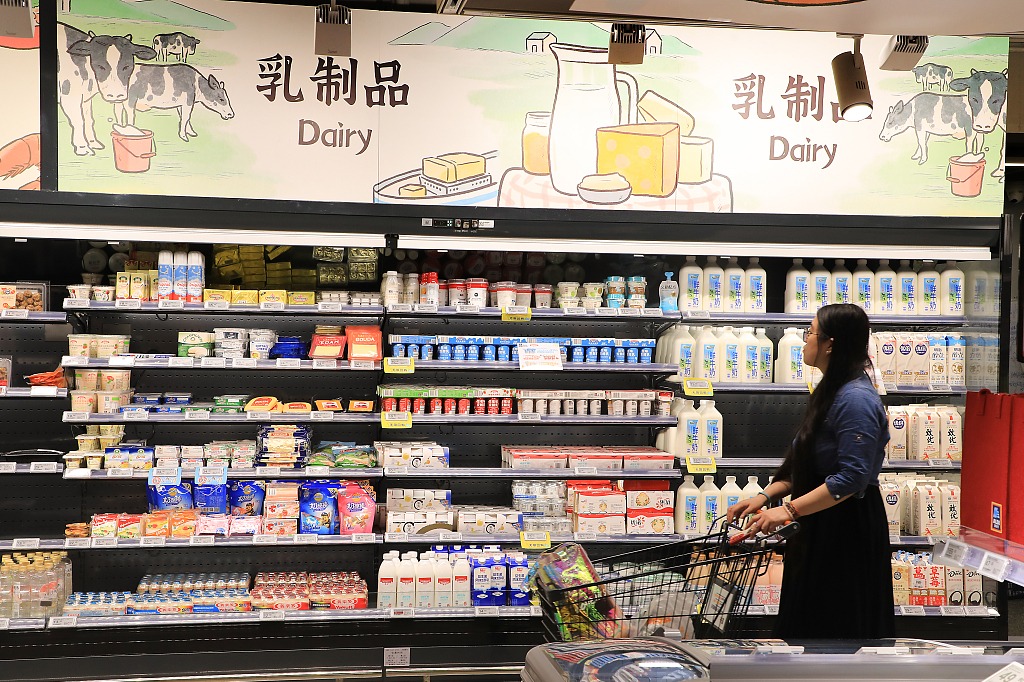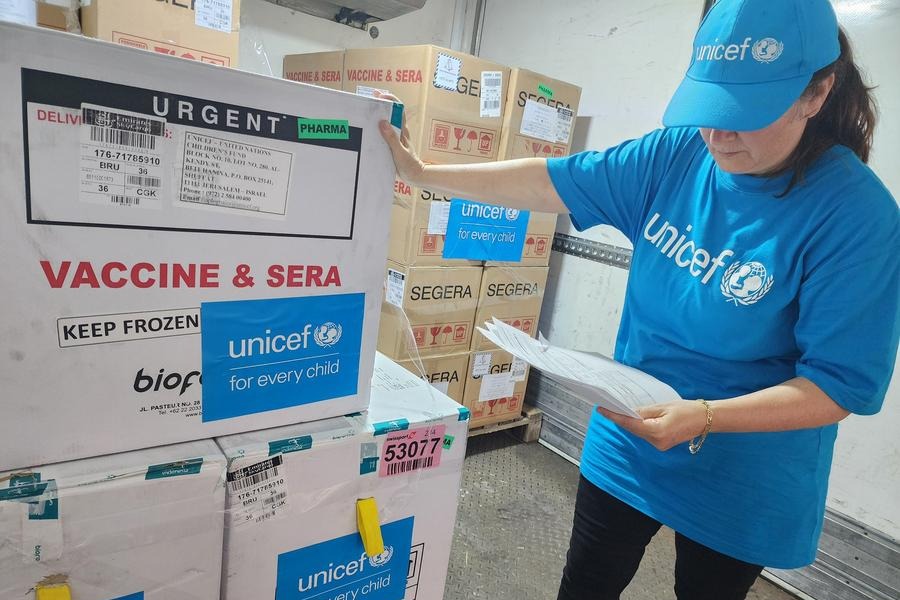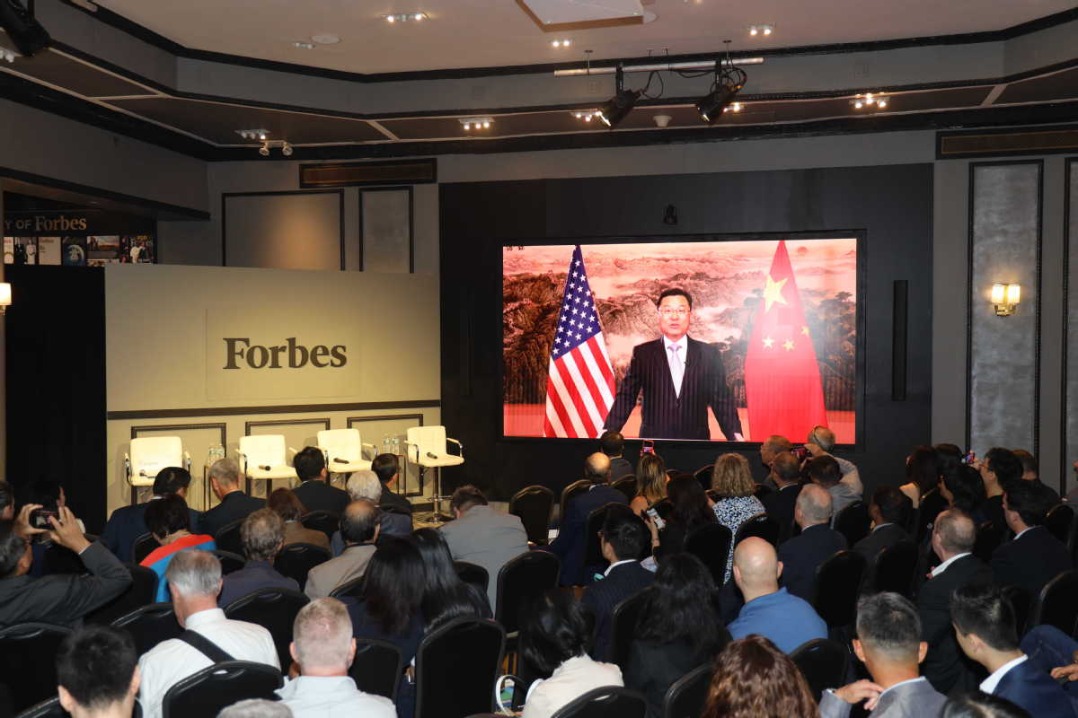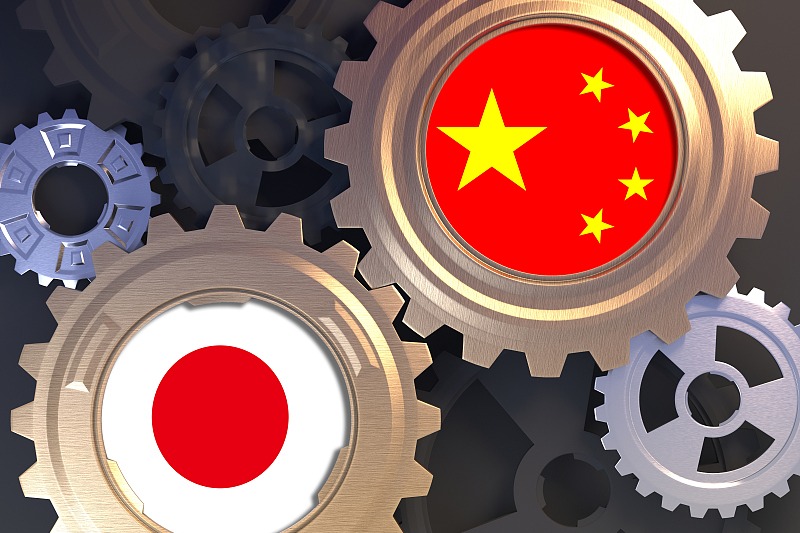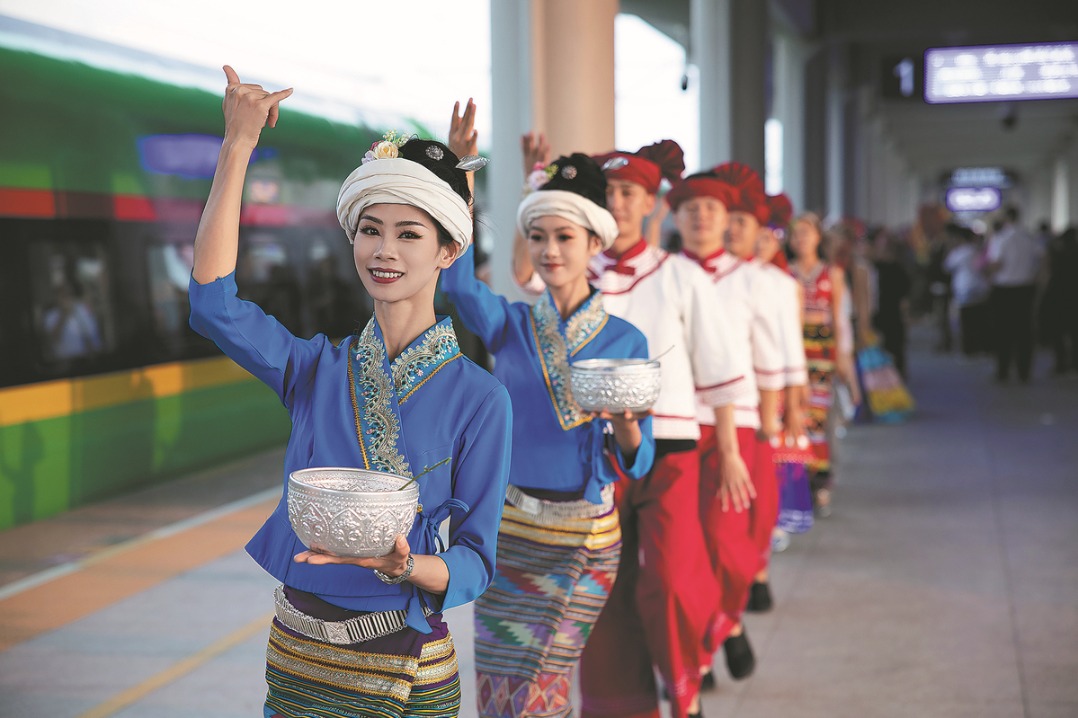Agriculture trip to China wows US participants

For Harmon Barlow, executive director of the Kentucky Dairy Development Council, his participation in the Fourth Annual US-China Agriculture Roundtable in multiple cities in China in June "was nothing like what I was kind of expecting".
"I had a lot of preconceived ideas about what to expect," he told the audience on Thursday at an online event to share his experiences. "There were times I was a little bit even apprehensive about making the trip. But it turned out to be a great experience."
According to Min Fan, executive director of the US Heartland China Association (USHCA), which organized the roundtable with several Chinese agencies, the delegation visited universities, farms and agricultural-experiment stations in China. They enjoyed talking with their counterparts and also sightseeing.
"We had a wonderful, enlightened trip," Fan said.
Barlow has been to Europe, South America and Africa and knows well the international dairy markets, including China's. The trip, his first to China, opened his eyes to other facets of the country.
"And China, it's amazing how they have developed their own industry in the dairy world and are using much less exports than they ever have before," Barlow said.
He was amazed to see the work ethic in China.
"Everybody is working, everybody has something to do," he said. "There's no waste."
One thing he noticed is how land is used in China. "When we were on those bullet trains, and you looked across, you saw every inch of available land was in food production. I thought that was fascinating."
Barlow was also struck by other aspects of China. "I found it was obviously the cleanest and probably safest place I've ever been," he said.
He said it was "fascinating" to see "practically zero obesity" in China, and "the citizens were very healthy and weren't facing a lot of the issues that is really epidemic in our country today with obesity and things like that".
The trip led Barlow to realize that it is important to keep the dialogue going: "It's better to talk than to yell at each other and go through what the TVs say."
For Olga Bolden-Tiller, dean of agriculture at Tuskegee University, it was also her first time in China.
"I think what was most enlightening for me was the conversation around how the US can partner with China to really address global food security and do so from an educational standpoint," she said.
"I like the model that China has with a few other organizations where they are partnering with developing countries to do work on the ground in China to really uplift a lot of their producers and some of the agricultural practices," Bolden-Tiller said.
Lou Swanson, professor emeritus from Colorado State University, said he enjoyed the aspect of global citizenship from the trip. "At Colorado State University, we really think that people-to-people, student-to-student, faculty-to-faculty relationships are the core for having any kind of global citizenship," said Swanson.
"What this trip did — and I've taken many delegations of students and faculty to China over the years — is the people-to-people dimension."
Swanson said that trade and cultural exchanges are important to avoid misunderstandings that can lead to conflict. Trips like this help people "to understand the importance, but also the precariousness, of not attending to this global citizenship", he said.
















